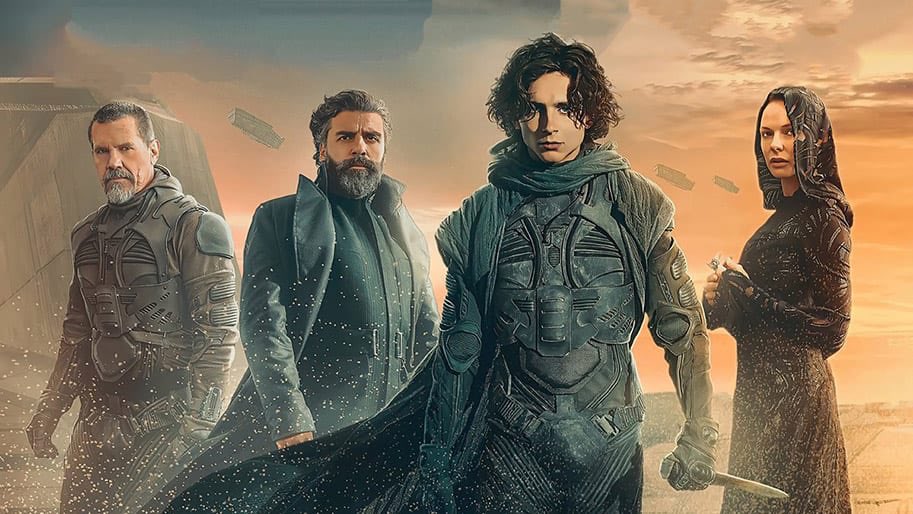Denis Villeneuve’s sci-fi epic of Dune (or, to be more specific, Dune Part One), is releasing in cinemas, and it is a spectacle to behold.
The star-studded cast all give strong performances, from Timothée Chalamet to Josh Brolin. The story is easy to follow yet has a deep world to dive into, which is a relief to audiences who haven’t read the book. However, there are some plot and story issues that the sequel films will hopefully resolve.
Dune is an incredibly complex story in the book with its many Houses, the imperial structure of the galaxy and the highly important planet of Arrakis. It is a galaxy full of futuristic and sci-fi technology, in a Game of Thrones meets Star Wars fashion.
Our protagonist is from House Atreides, and is caught in the political machinations of the other houses, and then the spiritual side of the Bene Gesserit. The latter are presented as a side plot within the film, and their scenes are less interesting than the wider political situation at play.
One of the downfalls is how the pace of this film is spread unevenly. Its first half is notably faster than the second, containing most of the action and political drama. The second half is much slower, with Paul and his mother Jessica traversing the desert to find the Fremen. This is then slowed even further at times, with visions occurring often within the film. It is unclear why these visions happen, or what they mean exactly, except that future films in the franchise will pay them off. These visions slow the film down, and is franchise building at the expense of story.
The ending is deliberately left in the middle of the story, but again it shows that Denis Villenuve is more concerned with starting a franchise than making a complete story. It will negatively affect the ability to rewatch the film until the full parts of it are out. This does also mean that the audience is left wanting more, which means that the director and cast have done a fantastic job at investing the audience.
The visuals of the film are very strong, especially some of the desert shots. One shot that is particularly memorable can be seen in the trailer, with Liet Kynes brandishing her weapons to the desert just before her death. The film therefore is visually captivating, which is helpful to keeping audience attention.
Dune is full of visual spectacle, explaining a complex story that is understandable to the audience. However, the film prioritises franchise building over telling a full story, which pulls it down.
While there is no doubt that the franchise will eventually build to a cohesive whole, it is also clear that this is not the next Star Wars or Lord of Rings, despite what the film’s promotional material would have audiences believe. The ending of Dune does leave the audiences wanting more, which will have them coming back when the next installment comes out.
Rating: 7/10
By Kieran Burt
Feature image: Warner Bros

